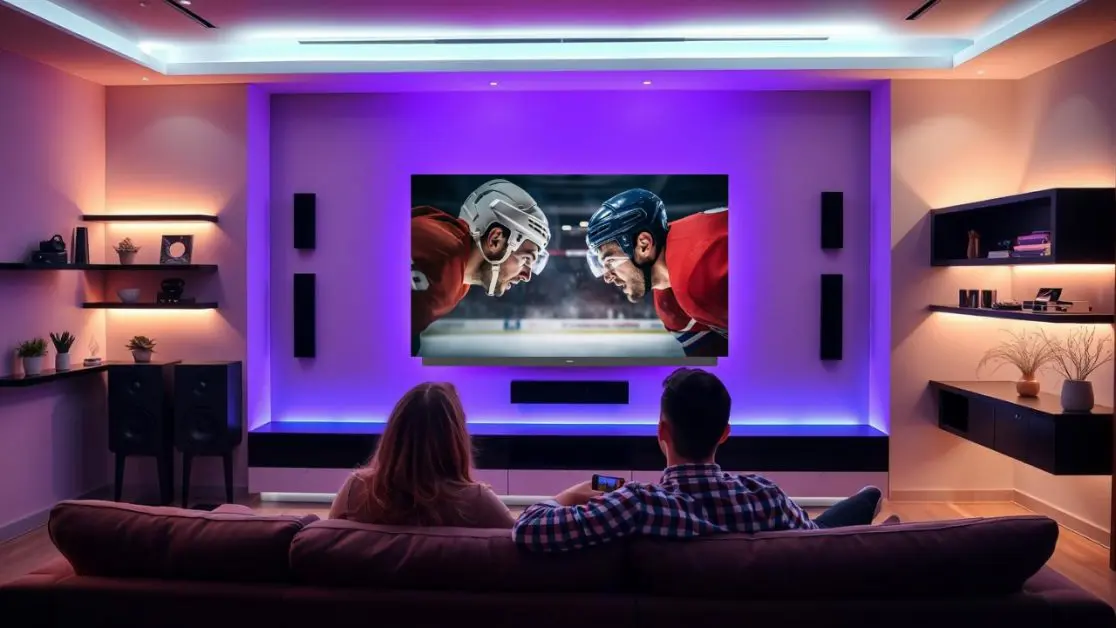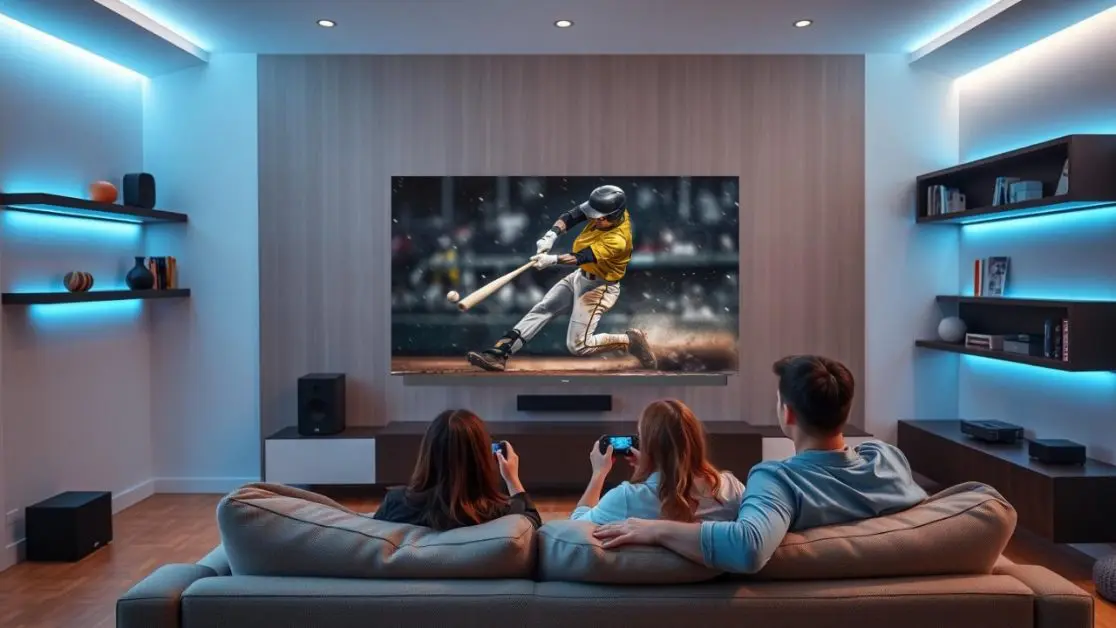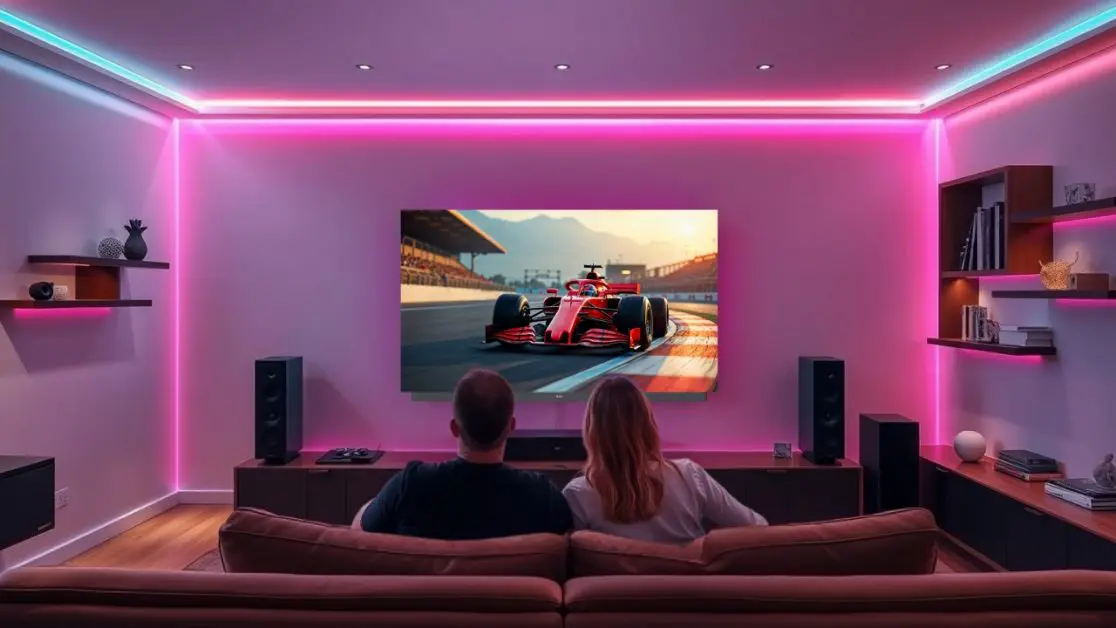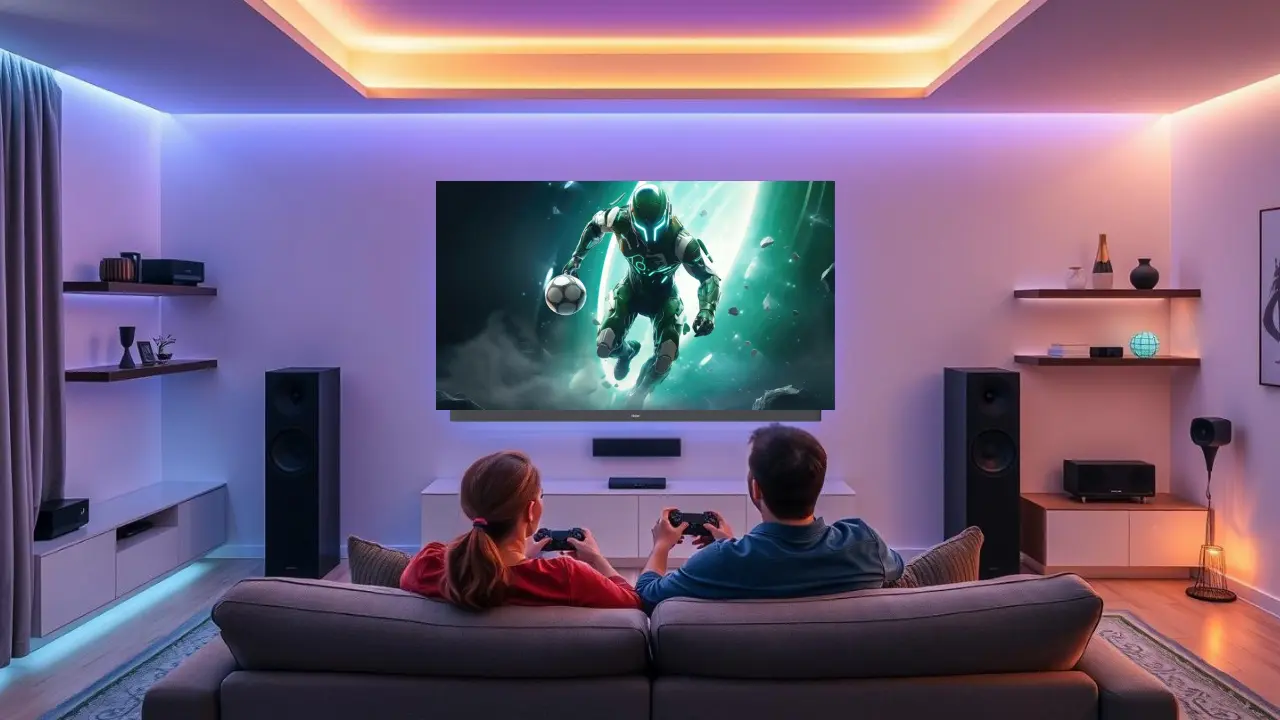Ever watched a fast-paced football match or played an intense game, only to get frustrated by blurry motion or lag? It’s the worst! When every second counts, you need a smooth, crystal-clear experience. That’s where a 120Hz refresh rate comes in ensuring you never miss a moment.
A higher refresh rate means the screen updates more frequently, making movements look silky smooth and reducing motion blur. Whether you’re tracking a fast-moving soccer ball or reacting to an enemy in a game, everything feels sharper, quicker, and more immersive compared to a standard 60Hz display.
Imagine playing your favorite game with faster reaction times, no screen tearing, and zero lag. Or watching a high-speed F1 race where every sharp turn looks ultra-realistic. A 120Hz refresh rate in a television enhances both gaming and sports viewing, making everything look fluid and lifelike.
So, is upgrading to a 120Hz display worth it? Absolutely! If you love gaming or sports, this small change will completely transform your experience.
Get ready for a smoother, sharper, and more responsive screen you won’t want to go back!
What Exactly Does a 120Hz Refresh Rate Accomplish?

With an increased refresh rate, smoother motion transitions on the screen are guaranteed. As previously mentioned, the refresh rate refers to the number of times an image refreshes per second, significantly impacting motion blur, sharpness, and clarity.
A low refresh rate results in motion blur and loss of clarity, which negatively affects the viewing experience. However, with the proper adaptation of devices, these issues can be avoided.
Refresh Rate Comparison
| Refresh Rate | Frame Refresh Per Second | Best For |
| 60Hz | 60 frames per second | Basic content consumption |
| 120Hz | 120 frames per second | 360-degree viewing, gaming, fast-action sports |
| 240Hz | 240 frames per second | Ultra-competitive gaming, professional use |
Sports enthusiasts and gamers would benefit from a 120Hz refresh rate as it maintains efficiency in other tasks while offering high performance.
How 120Hz Enhances Gaming Performance

1. Fulfills Speed and Decreases Lag
Gamers need fast movements and smooth interactions. A 120Hz display provides faster reaction times and less delay compared to a 60Hz screen.
Variable Refresh Rate (VRR): Eliminates screen tearing by synchronizing the display refresh rate with the frame rate of the video game.
Auto Low Latency Mode (ALLM): Reduces lag by automatically optimizing FPS settings for console gaming. In this mode, input delay is lowered, while reaction times in the game increase, ensuring a seamless experience.
2. Superb Frame Rates, Images, and Textures
Motion Blur Reduction: A 120Hz screen provides crisper images in fast-paced FPS games, enhancing the gaming experience.
Dolby Vision IQ & Atmos: Improves video quality while maintaining sharp, bright colors where necessary, providing a superior visual experience.
Harman Kardon & DBX-tv Audio: Enhances gameplay with epic sound quality, rendering dialogue, background scores, and even explosions with greater power.
3. Competitive Edge in Esports
In high-action esports, every millisecond counts. Professional gamers rely heavily on increased refresh rates for smooth tracking, dodging, and reflex actions. A 120Hz screen provides a competitive advantage by making these actions more precise and effortless.
How 120Hz Enhances Sports Viewing

1. No Blurring and Greater Motion Clarity
Watching fast-paced sports like football, F1 racing, or cricket on a 60Hz display results in motion blur. A 120Hz refresh rate ensures that every action, whether a fast sprint or a cricket ball being bowled, appears sharper and more detailed than on a 60Hz display.
2. Improved Depth and Realism
Modern sports broadcasts use high-frame-rate cameras. When paired with a 120Hz display, viewers can fully appreciate the rich details in real time. Dolby Vision IQ further enhances this by adjusting brightness and contrast according to ambient light.
3. Super Immersive Sound for an Enhanced Viewing Experience
Premium stereo systems like Harman Kardon and DBX-tv ensure that every cheer, commentary, and background sound is crystal clear, making viewers feel as if they are inside a virtual stadium.
Differences Between 120Hz and Standard Displays
| Attributes | 60Hz Display | 120Hz Display |
| Motion Blur | Noticeable during fast-action scenes | Minimal to none |
| Input Lag | Higher | Lower |
| Gaming Performance | Limited agility and responsiveness | Faster, close-to-seamless gameplay |
| Sports Experience | Blurred motion during fast plays | Fluid and precise movement |
What to Look for in a 120Hz Display
When choosing a display with a 120Hz refresh rate, consider the following features to elevate the experience:
- Google TV: Grants effortless access to pre-arranged recommendations for gaming and sports.
- Game Mode (VRR/ALLM): Ensures optimal performance in gaming scenarios.
- Premium Audio Solutions (Harman Kardon & DBX-tv): Complements visual quality with unmatched audio performance.
Is a 120Hz Refresh Rate Worth It?
The answer is clear. A 120Hz refresh rate makes watching movies or playing video games smoother, faster, and more immersive. It is a worthwhile investment for those who value picture quality and unmatched performance.
For individuals looking to enhance their entertainment experience, console gaming and sports viewing have reached new heights with displays optimized for advanced gaming technology. With Haier India leveraging the latest advancements in visual technology, users can experience gaming and entertainment like never before.

